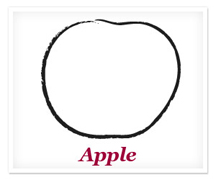Some Good News for 2012!
By Alice Osborne
 Whether you're trying to prevent or control diabetes, there is some good news. You can make a big difference with some healthy lifestyle changes. The most important thing you can do for your health is to lose weight - and you don't have to lose all your extra pounds to reap the benefits. Experts say that losing just 5% to 10% of your total weight can help you lower your blood sugar considerably, as well as lower your blood pressure and cholesterol levels. That's good news.
Whether you're trying to prevent or control diabetes, there is some good news. You can make a big difference with some healthy lifestyle changes. The most important thing you can do for your health is to lose weight - and you don't have to lose all your extra pounds to reap the benefits. Experts say that losing just 5% to 10% of your total weight can help you lower your blood sugar considerably, as well as lower your blood pressure and cholesterol levels. That's good news.
It's not too late to make a positive change, even if you've already developed diabetes. The bottom line is that you have more control over your health than you think.
 Since the biggest risk factor for developing diabetes is being overweight, let's talk about body fat. Not all body fat is created equal. Your risk is higher if you tend to carry your weight around your abdomen - the so-called "spare tire" - as opposed to your hips and thighs. This type of physique is called the "apple." So why are "apple" shaped people more at risk than "pears"?
Since the biggest risk factor for developing diabetes is being overweight, let's talk about body fat. Not all body fat is created equal. Your risk is higher if you tend to carry your weight around your abdomen - the so-called "spare tire" - as opposed to your hips and thighs. This type of physique is called the "apple." So why are "apple" shaped people more at risk than "pears"?
 "Pears" store most of their fat close below the skin. "Apples" store their weight around their middle, much of it deep within the belly surrounding their abdominal organs and liver. And the research shows that this type of deep fat is closely linked to insulin resistance and diabetes.
"Pears" store most of their fat close below the skin. "Apples" store their weight around their middle, much of it deep within the belly surrounding their abdominal organs and liver. And the research shows that this type of deep fat is closely linked to insulin resistance and diabetes.
In fact, many studies show that waist size is a better predictor of diabetes risk than BMI (body mass index). Here's the numbers to know: You are at an increased risk of developing diabetes if you are:
• A woman with a waist circumference of 35 inches or more
• A man with a waist circumference of 40 inches or more
 To measure your waist circumference, place a tape measure around your bare abdomen just above your hip bone. Be sure that the tape is snug (but does not compress your skin) and that it is parallel to the floor. Relax, exhale, and measure your waist.
To measure your waist circumference, place a tape measure around your bare abdomen just above your hip bone. Be sure that the tape is snug (but does not compress your skin) and that it is parallel to the floor. Relax, exhale, and measure your waist.
So OK, let's say the waistline numbers aren't in our favor. What to do? We already know - I've been banging the nutrient-dense-food drum for over a year now. The bottom line is that eating right is vital if you're trying to prevent or control diabetes.
 While exercise is also important, what you eat has the biggest impact when it comes to weight loss. But what does eating right for diabetes mean? You may be surprised to hear that your nutritional needs are virtually the same as those for everyone else: no special foods or complicated diets are necessary. This means we don't have to fuss with special recipes or preparing separate meals, etc. More good news!
While exercise is also important, what you eat has the biggest impact when it comes to weight loss. But what does eating right for diabetes mean? You may be surprised to hear that your nutritional needs are virtually the same as those for everyone else: no special foods or complicated diets are necessary. This means we don't have to fuss with special recipes or preparing separate meals, etc. More good news!
A diabetes diet is simply a healthy balanced eating plan that is high in nutrients, low in fat, and moderate in calories. It is a healthy diet for anyone! The only difference is that you need to pay more attention to some of your food choices - most notably the carbohydrates you eat. And to top off this happy message, let's debunk some very common myths:
 MYTH: You must avoid sugar at all costs.
MYTH: You must avoid sugar at all costs.
Fact: The good news is that you can enjoy your favorite treats as long as you plan properly. Dessert doesn't have to be off limits, as long as it's a part of a healthy meal plan or combined with exercise. Oh, this might be the BEST news!
MYTH: A high-protein diet is best.
Fact: Studies have shown that eating too much protein, especially animal protein, may actually cause insulin resistance, a key factor in diabetes. A healthy diet includes protein, carbohydrates, and fats. Our bodies need all three to function properly, but the key is a balanced diet.
MYTH: You have to cut way down on carbs.
Fact: Again, the key is to eat a balanced diet. The serving size and the type of carbohydrates you eat are especially important. Focus on whole grain carbs since they are a good source of fiber and they are digested slowly, keeping blood sugar levels more even.
MYTH: You'll no longer be able to eat normally. You need special diabetic meals.
Fact: The principles of healthy eating are the same - whether or not you're trying to prevent or control diabetes. Expensive diabetic foods generally offer no special benefit. You can easily eat with your family and friends if you eat in moderation.
 Notice the word balance or balanced? This is doable. So let's take this good news to heart and commit to making these basic changes this year. 2012 - the year we enjoy improved health and no more blood sugar blues!
Notice the word balance or balanced? This is doable. So let's take this good news to heart and commit to making these basic changes this year. 2012 - the year we enjoy improved health and no more blood sugar blues!

